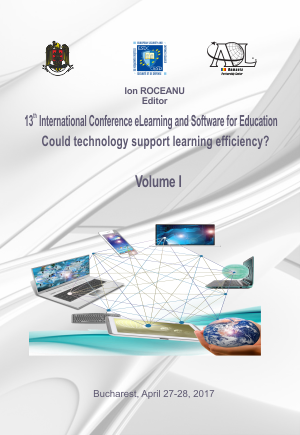EDUCATION AND CONTEMPORARY CHALLENGES - THE DEVELOPMENT OF NEW LEARNING ENVIRONMENTS - CASE STUDY
EDUCATION AND CONTEMPORARY CHALLENGES - THE DEVELOPMENT OF NEW LEARNING ENVIRONMENTS - CASE STUDY
Author(s): Camelia STĂICULESCU, Răzvan Cătălin Dobrea, Maria Liana LăcătuşSubject(s): Social Sciences, Education
Published by: Carol I National Defence University Publishing House
Keywords: non-traditional social spaces; learning environments; real working environments
Summary/Abstract: The preoccupation with the creation of complete educational systems, responding to the needs of their beneficiaries (pupils, students, course attendants) is now more valid than ever. The extension of school into non-traditional social spaces, the creation of new learning environments, represents a solution for the current educational needs. This article presents the results derived from an educational project which has managed to put together both the traditional learning environment, from the university, and the social-economic environment represented by the employers. The two entities acted together to contribute to the success of college graduates. The educational experiences created by the two entities aimed to develop complex educational services targeting students: traditional teaching, with the organization of learning experiences in real working environments, face-to-face, as well as on-line student guidance and tutoring, the provision of complex counselling services, at individual and at group level, both face-to-face and on-line. The work indicates the fact that there is a direct dependence between the growth in the number of students who were involved in learning experiences in real working environments, corresponding to their preparation, abilities, interests, competencies and the facilitation of transition from school to active life, reflected by the time necessary for students/ graduates to be employed in the specialty that they completed. Also, the work indicates that there is a direct relation between the increase in the complexity of information, orientation, counselling, and monitoring services provided to the students within the learning community in real working environments and the reinforcement of the partnership between the university and the social and economic environment. The impact of the educational project on the beneficiaries, future graduates of master’s degree studies, was a major one. The students developed their capacity for adjustment to the requirements of a workplace, they put into practice the matters learned in theory, they developed their learning and communication capacities, improved their career opportunities by developing specific competences on the initiation and management of their own career within orientation and counselling activities etc. The educational project presented by the article represents a best practice model which indicates the mode in which the opportunities for the start of active life can be improved, by improving communication between the students and future employers within a varied learning community, conducted in the real environment, as well as online.
Journal: Conference proceedings of »eLearning and Software for Education« (eLSE)
- Issue Year: 13/2017
- Issue No: 01
- Page Range: 238-243
- Page Count: 6
- Language: English

